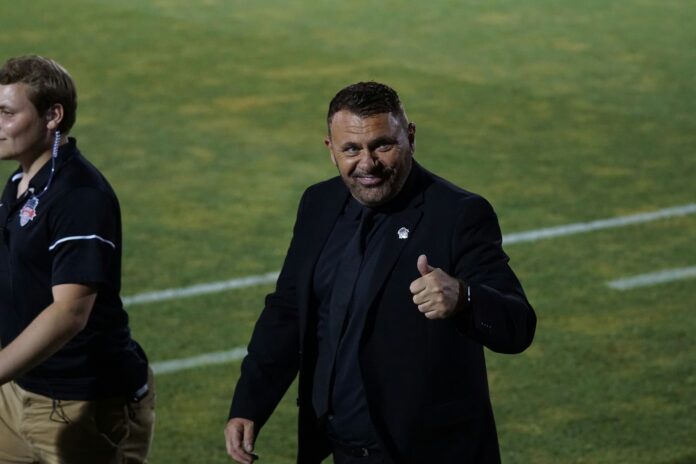In football, the spotlight has long belonged to the players. Their goals, their celebrations, their brands. But a shift is underway. Managers, once confined to the technical area and post-match interviews, are beginning to understand their commercial potential. They’re building personal brands, entering endorsement deals, and in some cases, launching businesses of their own. It’s not just about the game anymore. It’s about image, influence, and income.
The Rise of the Manager-as-Brand
Managers today are public figures as much as they are tactical leaders. They speak to millions in press conferences, appear regularly in viral media clips, and in many cases, have careers that span decades across Europe’s biggest clubs. That kind of visibility is valuable. And smart managers are beginning to leverage it.
Jürgen Klopp is a prime example. Known for his emotional intelligence, sharp humour, and authentic personality, Klopp has built a reputation as one of the most likeable figures in world football. He hasn’t just relied on his success with Liverpool or Borussia Dortmund to carry his legacy, he’s actively expanded his commercial footprint. His partnership with Trivago, the travel booking platform, was a strategic move. The brand benefits from Klopp’s trustworthy, down-to-earth image, and in return, Klopp diversifies his income and builds a brand that can outlive his time in football management.
A slightly different approach is that of José Mourinho, perhaps less universally adored, but unquestionably iconic. Mourinho has fully embraced the persona he created nearly two decades ago when he famously introduced himself as “The Special One.” He’s taken that identity and built a commercial platform around it. In 2023, he launched “Special One” wine, capitalising on his Portuguese heritage and refined image. It’s not a random endorsement, it’s a product that ties directly into the way Mourinho has always presented himself: as cultured, elite, and unique.
How Managers Can Build a Personal Brand
For managers looking to follow suit, it starts with clarity. What do they stand for? What tone do they set in interviews? What emotions do they consistently evoke, trust, excitement, inspiration, controversy? A personal brand is not created in a boardroom, it’s shaped through behaviour, communication style, public moments, and even failure.
Once that identity is established, commercial opportunities begin to align. A manager with a family-man image might appeal to lifestyle or automotive brands. A fiery, outspoken figure might work well with edgier partners in fashion or media. The key is alignment, between personality and product. Fans can spot inauthenticity quickly, and in football, trust is everything.
Social media can be a powerful tool in this space. While many managers still shy away from platforms like Instagram or X (formerly Twitter), others have embraced them. Mikel Arteta, for instance, has a polished digital presence, often sharing behind-the-scenes content with Arsenal fans. That level of visibility opens doors, not just to commercial deals, but to broader storytelling and fan engagement.
Even retired managers are getting in on the act. Sir Alex Ferguson, once famously averse to personal publicity, has entered the speaker circuit, published memoirs, and become the face of selective campaigns, including financial and insurance services. Carlo Ancelotti has also authored books and engaged in commercial partnerships that suit his calm, wise mentor-like image.
Treading Carefully: The Risks of Overexposure
But this isn’t a free pass to cash in. In football, where results dictate legacy, the court of public opinion can turn quickly. Fans will forgive a manager for launching a wine brand after winning the league. They’ll be less generous if it comes during a losing streak. The perception, right or wrong, is that anything off the pitch is a distraction.
That’s the balance modern managers must strike. Build the brand, but never let it interfere with performance. Or at the very least, don’t let it look like it’s interfering. In a results-driven sport, a misjudged endorsement can backfire. Think of how quickly fans call out players for off-field ventures when their performances dip, managers are now entering that same territory.
Journalists Join the Game
Interestingly, it’s not just the players and coaches. Even football journalists are becoming brands. Fabrizio Romano is a textbook case. Once a relatively unknown reporter, he’s built a global following through consistent reporting, a unique tone, and catchphrases like “Here we go.” But Fabrizio didn’t stop there. He leveraged that profile into brand partnerships, most notably with Heineken, aligning with Champions League campaigns, and more recently, becoming an ambassador for Visit Maldives, promoting the tourism board through his massive social reach.
Romano’s success is a reminder that in the modern football media ecosystem, anyone with attention and credibility can monetise it. Podcasts, newsletters, YouTube channels, and social accounts are all platforms where journalists build influence, and brands are paying attention.
Final Thoughts
The game has changed. Managers are no longer just tacticians, they’re public figures, storytellers, influencers. And while the primary goal will always be to win football matches, the opportunity to build a personal brand and tap into commercial partnerships is real, and growing. The key is doing it with authenticity and timing. When done well, it can elevate a manager’s profile, extend their career beyond the sidelines, and create financial independence that lasts long after the final whistle.
In the modern football economy, the pitch is only part of the business. For managers and journalists alike, the brand is the new frontier.

